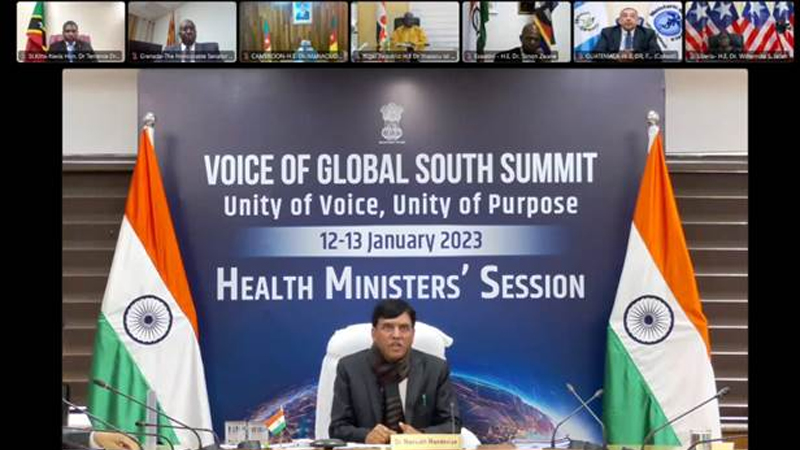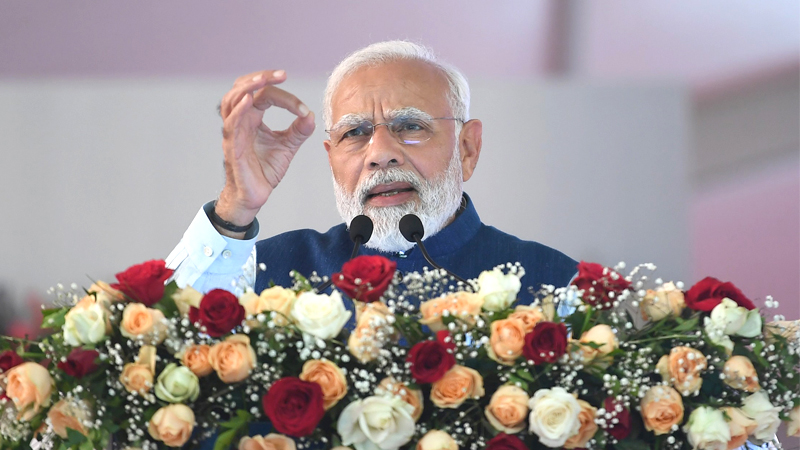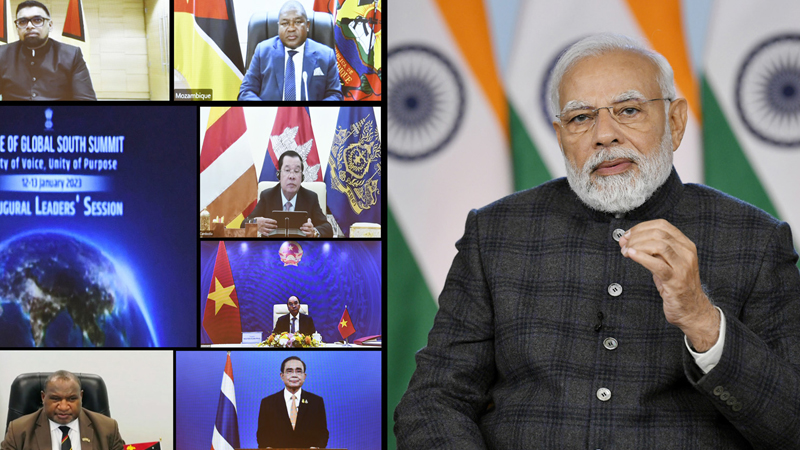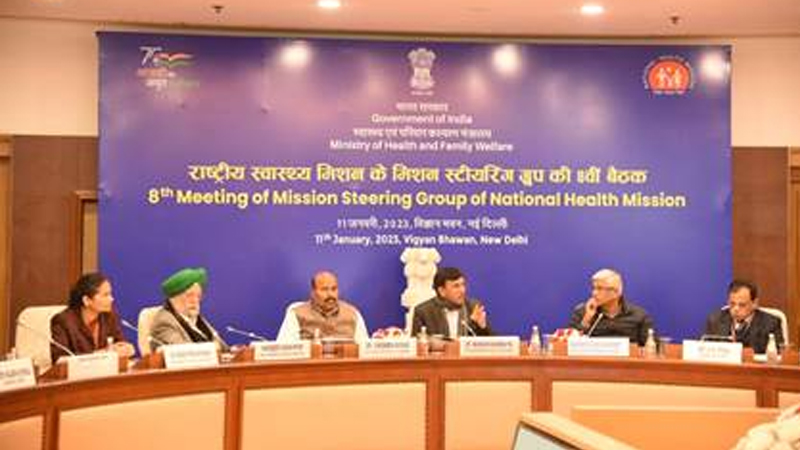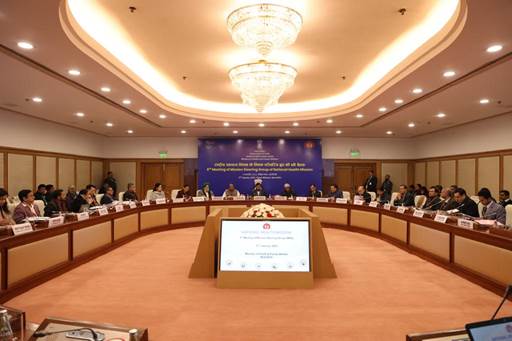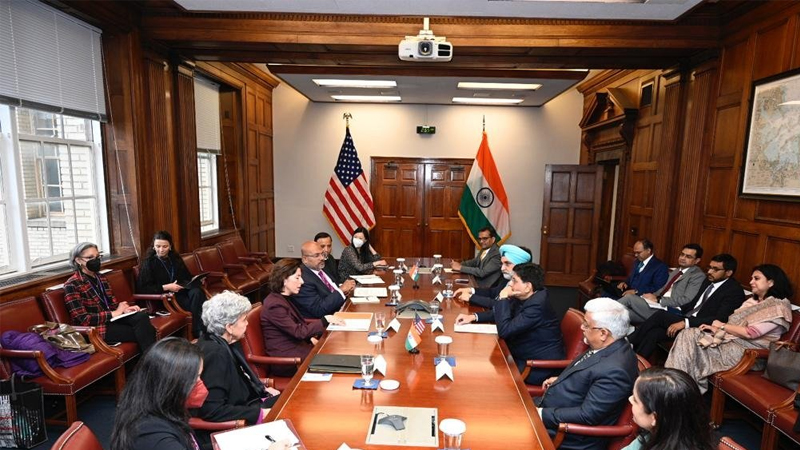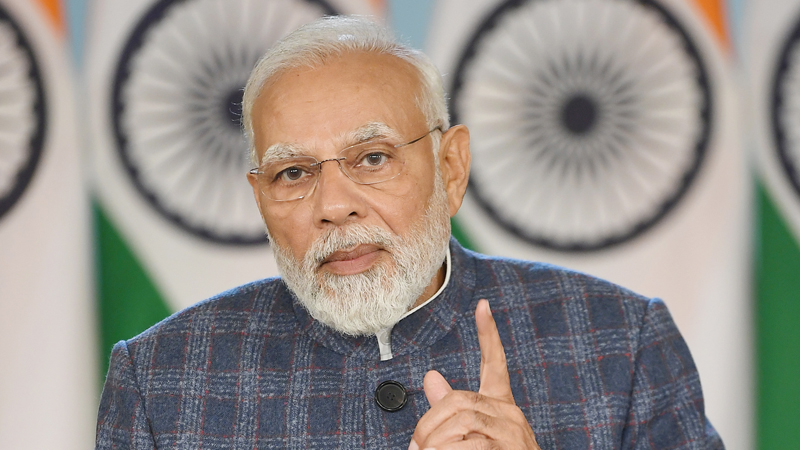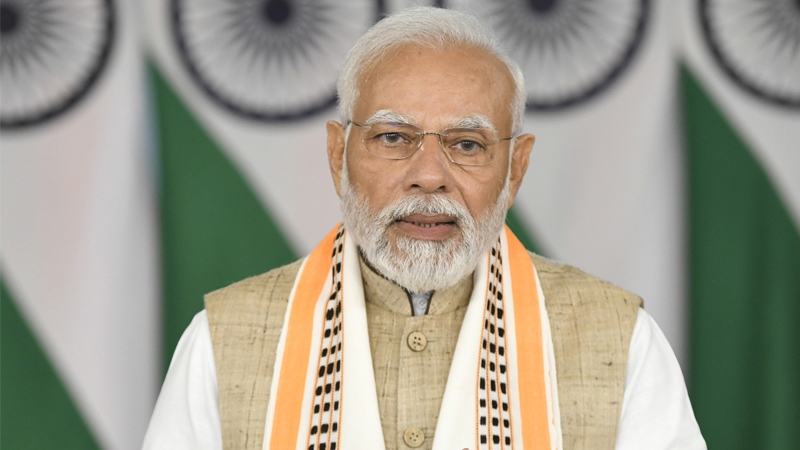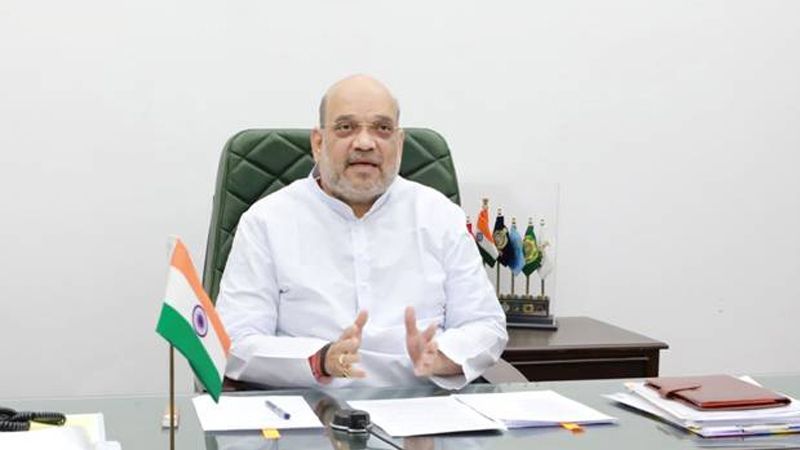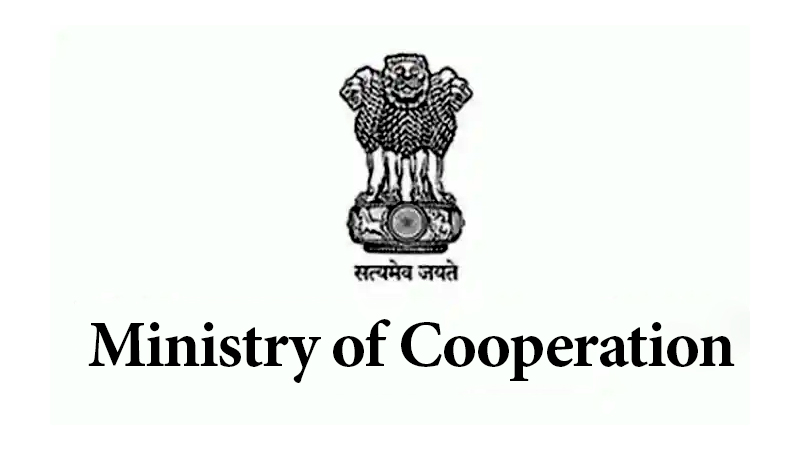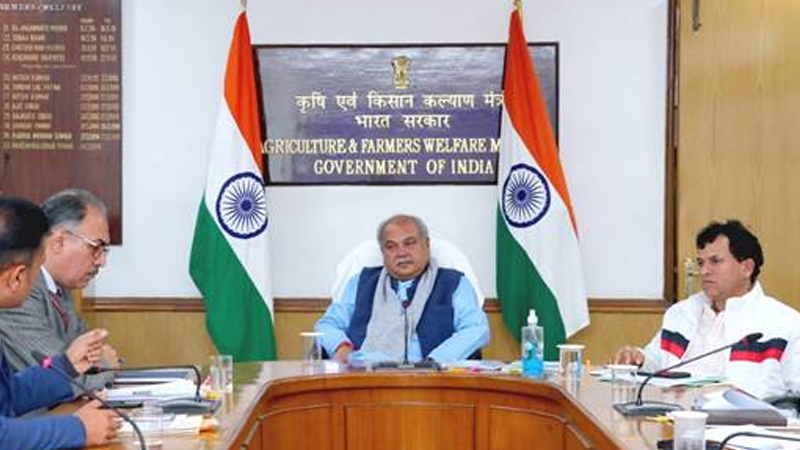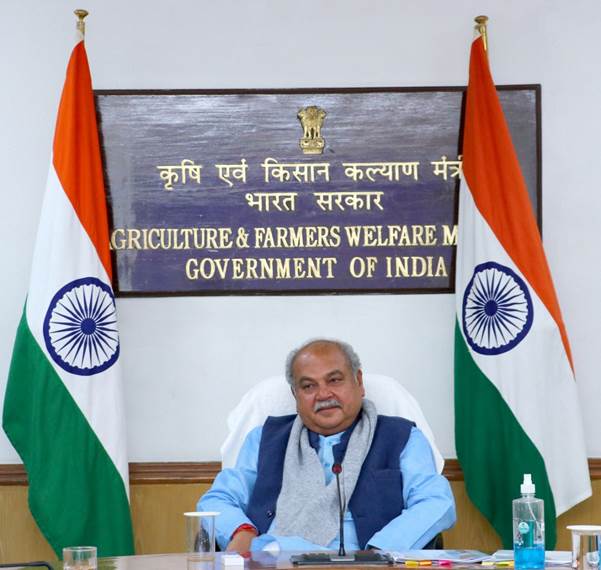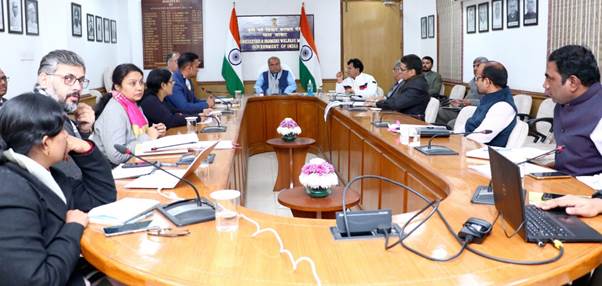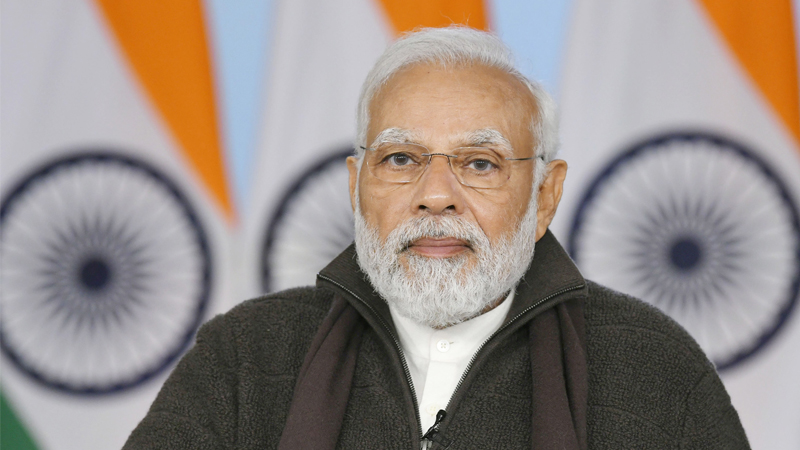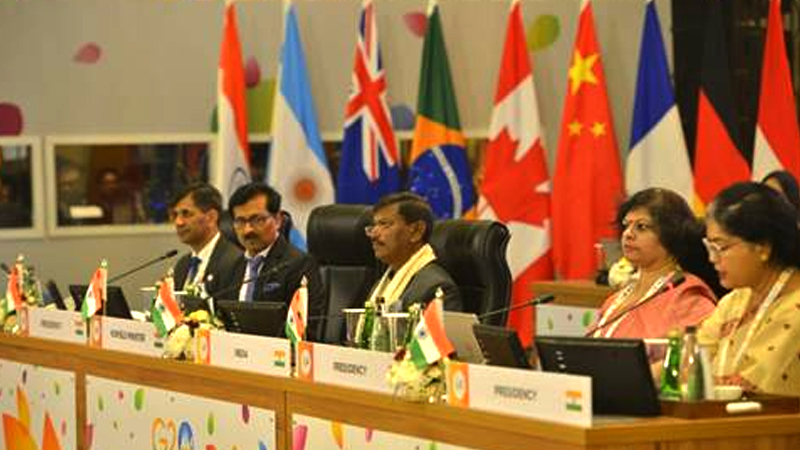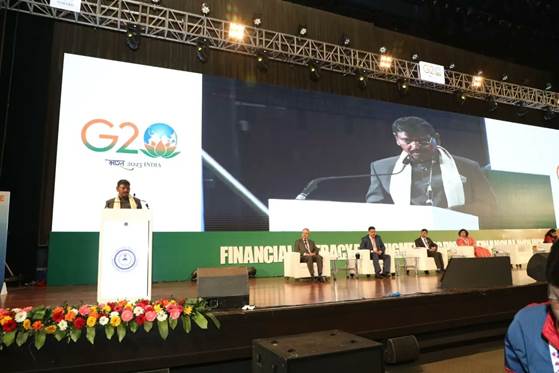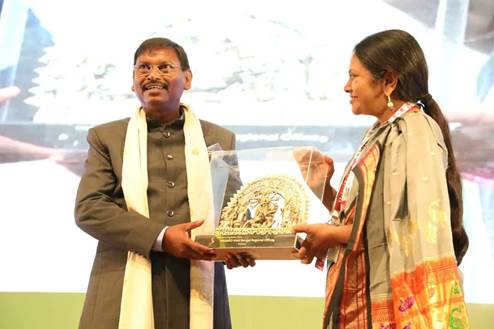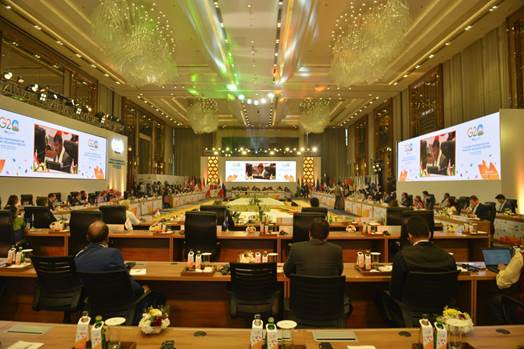Present in the programme are Karnataka Governor Shri Thawar Chand Gehlot ji, Chief Minister Shri Basavaraj Bommai ji, my colleagues in the Union Cabinet, ministers of the state government, MPs, MLAs and my young friends of Karnataka and the country!
मूरु साविरा मठा, सिध्दारूढा मठा, इन्तहा अनेक मठागला क्षेत्रकके नन्ना नमस्कारगलू! रानी चेन्नम्मा ना नाडु, संगोल्ली रायण्णा ना बीडू, ई पुन्य भूमि-गे नन्ना नमस्कारगलू!
This region of Karnataka is famous for its tradition, culture and knowledge. Many personalities here have been honored with Jnanpith Award. This region has given the country several great musicians. I pay my respects to Pandit Kumar Gandharva, Pandit Basavaraj Rajguru, Pandit Mallikarjun Mansur, Bharat Ratna Pandit Bhimsen Joshi and Pandita Gangubai Hangal ji from the land of Hubballi today.
Friends,
The ‘National Youth Day’ in 2023 is very special. On one hand, there is this exuberant National Youth Festival, and on the other hand, ‘Amrit Mahotsav’ of freedom! “Arise, awake and stop not until the goal is reached”. Eli! Edheli!! Guri Muttuva Tanka Nildiri. This slogan of Vivekananda ji is the life mantra of the youth of India. Today, we have to take the country forward by emphasizing on our duties and understanding them in ‘Amrit Kaal’. And there is great inspiration of Swami Vivekananda ji in front of the youth of India. I bow down at the feet of Swami Vivekananda ji on this occasion. Just a few days ago, another great saint from the land of Karnataka, Sri Siddheshwar Swami ji, passed away. I also pay my respectful homage to Shri Siddheshwar Swami ji.
Friends,
Swami Vivekananda had a wonderful relationship with Karnataka. He had made several visits to Karnataka and this region during his lifetime. He also visited Hubli-Dharwad while going to Bengaluru. These visits gave a new direction to his life. The Maharaja of Mysuru was also one of the people who helped Swami Vivekananda to travel to Chicago. Swami ji’s visit across India is also proof that our consciousness was one, our soul as one nation was one for so many centuries. This is an immortal example of the spirit of ‘Ek Bharat, Shreshtha Bharat’. The country is taking this spirit forward with new resolutions in ‘Amrit Kaal’.
Friends,
Swami Vivekananda used to say that the development of a future and a nation becomes easy when we possess the power of the youth. This land of Karnataka itself has produced so many great personalities, who gave foremost importance to their duties towards the nation and reached extraordinary feats at a very young age. Rani Chennamma of Kittur was one of the leading women freedom fighters of the country. She led the freedom struggle even in the most difficult times. Rani Chennamma’s army also had brave warriors like her companion Sangolli Rayanna, whose bravery had shattered the morale of the British army. Narayan Mahadev Doni of this land became a martyr who sacrificed his life for the country at the age of just 14.
Lance Naik Hanumanthappa Koppad, the son of Karnataka, showed how the vitality and courage of a youth can even defeat death in the mountains of Siachen. He struggled for six days even in minus 55 degree temperature, and came out alive. This ability is not limited to bravery only. You see, Shri Visvesvaraya proved that young talent is not confined to any one field by proving his mettle in engineering. Similarly, incredible examples of the talent and potential of our youth are awash in different parts of the country. Even today, the prowess of Indian youth amazes the world when competitions ranging from Maths to science are held on world forums.
Friends,
The priorities and goals of any nation change in different periods. Today, the stage at which we Indians have reached in the 21st century that appropriate time has come after centuries. And the biggest reason for this is the youth power of India, the Yuva Shakti. Today India is a young country. The huge youth population of the world is in our country.
Yuva Shakti is the driving force of India’s journey! The next 25 years are important for building the nation. Yuva Shakti’s dreams decide India’s direction. Yuva Shakti’s aspirations decide India’s destination. Yuva Shakti’s passion decides India’s path. To harness this Yuva Shakti, we need to be young with our thoughts, with our efforts! To be young is to be dynamic in our efforts. To be young is to be panoramic in our perspective. To be young is to be pragmatic!
Friends,
If the world looks to us for solutions, it is because of the dedication of our ‘Amrit’ generation. Today, when the world is looking towards India with so much hope, then credit goes to all of you, my young friends. Today we are the fifth largest economy in the world. Our target is to take it to the top-3. This economic growth of the country will bring immense opportunities for our youth. Today we are the world’s leading force in the field of agriculture. A new revolution is about to come in the field of agriculture through technology and innovation. As a result, new opportunities will emerge for the youth and new avenues will be opened to reach new heights. In the field of sports too, India is moving towards becoming a major power of the world. This is possible only because of the capability of the youth of India. Be it a village, a city or a town, the spirit of the youth is on the rise everywhere. Today you are witnessing these changes. Tomorrow you will become future leaders with its strength.
Friends,
This is a special time in history. You are a special generation. You have a special mission. This is the mission of making an impact for India on the global scene. For every mission, a foundation is needed. Whether it is the economy or education, sports or start-ups, skill development or digitalisation, in every domain, a strong foundation has been laid in the last 8-9 years. The runway is ready for your take off! Today, there is a great optimism in the world towards India and its youth. This optimism is about you. This optimism is because of you. And this optimism is for you!
Today, there are global voices saying this century is India’s century. It is your century, the century of India’s youth! There are global surveys saying the majority of the big investors want to invest in India. These investors want to invest in you, India’s youth. Indian start-ups are getting record investments. Many global companies are setting up manufacturing plants to Make In India. From toys to tourism, defence to digital, India is making headlines across the world. So, this is a historic time when optimism and opportunity are coming together.
Friends,
In our country, the Nari Shakti (women’s power) has always played an important role in awakening and increasing the potential of the nation’s power. Now women and our daughters are exhibiting bravery in this ‘Amrit Kaal’ of freedom. Indian women are flying fighter jets today and joining the army in combative roles. Our daughters are scaling heights in every field whether it is science, technology, space, or sports. It is a testimony that India is now moving towards its goal with full force.
Friends,
We have to make 21st century India’s century. And therefore, it is imperative that we think ten steps ahead of the present. Our thinking and approach should be futuristic! It is necessary that you make positive disruptions to fulfill the aspirations of the youth and move ahead of even the modern countries of the world. If we recall, there are many things which did not exist 10-20 years ago, but are an integral part of our lives today. Similarly, our world is going to change completely in the next few years, or possibly before the end of this decade. Emerging technologies like Artificial intelligence, Machine learning, Internet of Things and AR-VR would have evolved in a new form. Words like Data Science and Cyber Security would have deeply entrenched every aspect of our lives.
Everything is going to be seen in a new avatar through advanced technology from education to the security of the country and from healthcare to communication. The jobs which do not even exist today will be mainstream professions for the youth in the near future. Therefore, it is necessary that our youth prepare themselves for future skills. We have to connect ourselves with whatever new is happening in the world. We have to do the work that no one else is doing. The country is preparing a practical and futuristic education system through the new National Education Policy to prepare the new generation with this mindset. Today the focus is on innovative and skill oriented education from the school itself. Today the youth have the freedom to move forward according to their choice. This foundation will prepare future ready youth who will build India of the future.
Friends,
Today two messages of Swami Vivekananda should be a part of every youth’s life in this fast changing world. These two messages are — institutions and innovation! Institution is formed when we expand our ideas and work with team spirit. Today every youth should expand his individual success in the form of team success. This team spirit will take forward the developed India as ‘Team India’.
My young friends,
You have to remember one more statement of Swami Vivekananda. Swami Vivekananda used to say that every work has to pass through three stages – ridicule, opposition and acceptance. And this is the apt definition if innovation has to be defined in one line. For example, some people made fun of digital payments when they were introduced in the country a few years ago. Even when the Swachh Bharat campaign was launched, these people said that this is not going to work in India. They also made fun when the country came up with the scheme of getting Jan Dhan accounts opened in banks for the poor. Our scientists were also ridiculed when they came up with indigenous vaccines during Covid whether it would work or not.
Today India is the world leader in digital payments. Today Jan Dhan accounts are a major force of our economy. India’s achievement in the field of vaccines is being discussed all over the world. Therefore, if the youth of India have any new idea, remember that you may be ridiculed and opposed. But if you believe in your idea then stick to it and have faith in it. Your success will prove to be bigger than the imagination of those making fun.
Friends,
Today new efforts and experiments are being carried out continuously in the country by taking the youth along. As part of this, the youth of different states of the country have gathered here to participate in various competitions in the National Youth Festival. It is somewhat like competitive and cooperative federalism. Youth from different states are showcasing their skills with a spirit of healthy competition. Here it is not important who wins, because in any case, India will emerge victorious. For, the talent of our youth will come to the fore in the Youth Festival.
Besides competing with each other you will also cooperate with each other. That is why it is said that competition can happen only when the participants cooperate with each other in following a rule. We have to continuously take forward this spirit of competition and cooperation. We have to always think that where the country will reach with our own success. Today the goal of the country is – Viksit Bharat, Sashakt Bharat (Developed India, Strong India)! We do not have to pause without fulfilling the dream of a developed India. I am sure every youth will make this dream his own dream and will shoulder this responsibility of the country. With this belief, many thanks and best wishes to all of you!
DISCLAIMER: This is the approximate translation of PM’s speech. Original speech was delivered in Hindi.


